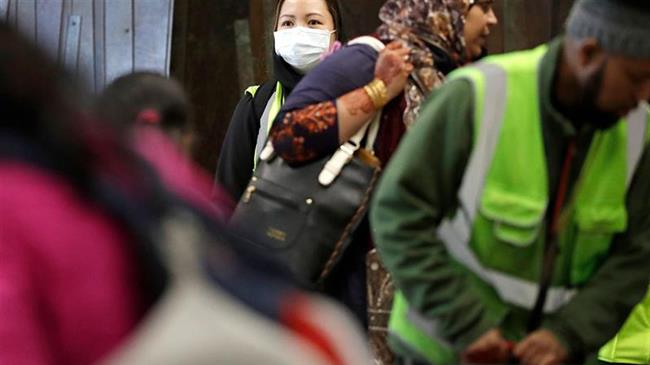Scramble to contain coronavirus as infections spread in Europe
Coronavirus cases have spread in Europe and beyond Wednesday, with Latin America confirming its first patient as the world scrambled to contain the deadly epidemic that has killed thousands worldwide.
New cases have emerged across Europe, many linked to the continent's coronavirus hotspot in northern Italy, amid warnings from health experts to rein in hysteria as the virus continued its march beyond China's borders.
The novel coronavirus has killed over 2,700 people and infected more than 80,000 in 34 countries, although the vast majority of cases remain in China, according to the World Health Organization (WHO).
But the WHO said Wednesday more new cases were now being recorded outside China than inside the country, where the deadly virus first emerged in late December.
In a sign of the virus' expanding footprint, Brazil confirmed Latin America's first case, a 61-year-old who traveled to Italy's Lombardy region.
Greece also confirmed its first case Wednesday, a woman who had been in northern Italy, while Spain, Croatia, Austria, North Macedonia and Algeria have all reported cases linked to the country.
Several governments have advised against travel to Italy -- which has 400 cases and 12 deaths -- particularly to the outbreak epicenter in the north.
'No panic'
Even as new cases continued to multiply beyond China's borders, the European Union sought to head off hysteria over the outbreak.
"This is a situation of concern, but we must not give in to panic," EU Health Commissioner Stella Kyriakides told reporters in Rome on Wednesday.
"We must also be vigilant when it comes to misinformation and disinformation," she added.
The impact of the virus has moved beyond health systems.
Markets have wobbled in recent days -- though Wall street stocks jumped back on Wednesday -- while sports matches and festivals across Europe have been cancelled over virus fears.
A March 7 Six Nations rugby match between Italy and Ireland in Dublin was called off Wednesday, while the famed Venice Carnival was closed early over the weekend.
As cases mounted across Europe, the WHO warned governments in Europe to remain vigilant.
"You have to keep up and sustain these efforts so that no-one is left behind because ultimately health is a political choice," WHO Regional Director for Europe Hans Kluge said in Rome on Wednesday.

'Potential pandemic'
The virus is believed to have emerged in a market in Wuhan city in China's Hubei province in late 2019, where it may have been transmitted to a human from an animal.
China imposed extraordinary quarantine measures in several cities, locking in tens of millions of people as it sought to curb the virus' rapid spread.
The country announced Wednesday that people arriving in Beijing from other countries hit by the virus epidemic will go into 14-day self-quarantine.
The WHO has praised Beijing for its response.
The WHO has called for countries to "prepare for a potential pandemic" -- an epidemic that spreads throughout the world -- even as new cases and deaths in China have continued to dip from previous numbers.
It warned that poor countries are particularly at risk, sparking fears of how countries in Latin America and Africa would cope with potential outbreaks.
(Source: AFP)
American warplane downed after Yemeni attacks 'baffled' US air defense: Ansarullah
VIDEO | Yemenis praise the military for its successful operations against Israel
VIDEO | Israel continues to bomb Gaza homes
VIDEO | An insider's view of the country: Meybod City in Yazd
‘All wars have rules. All of those rules have been broken’ by Israel
VIDEO | Report flags India’s violation of rights of Rohingya detainees
Turkey's foreign minister meets Syria's de facto leader in Damascus
VIDEO | US Syria plots













 This makes it easy to access the Press TV website
This makes it easy to access the Press TV website